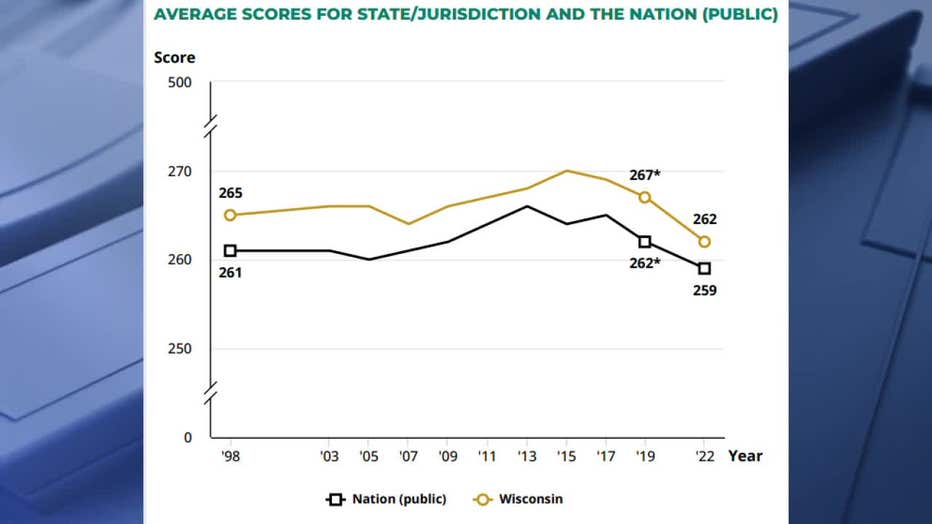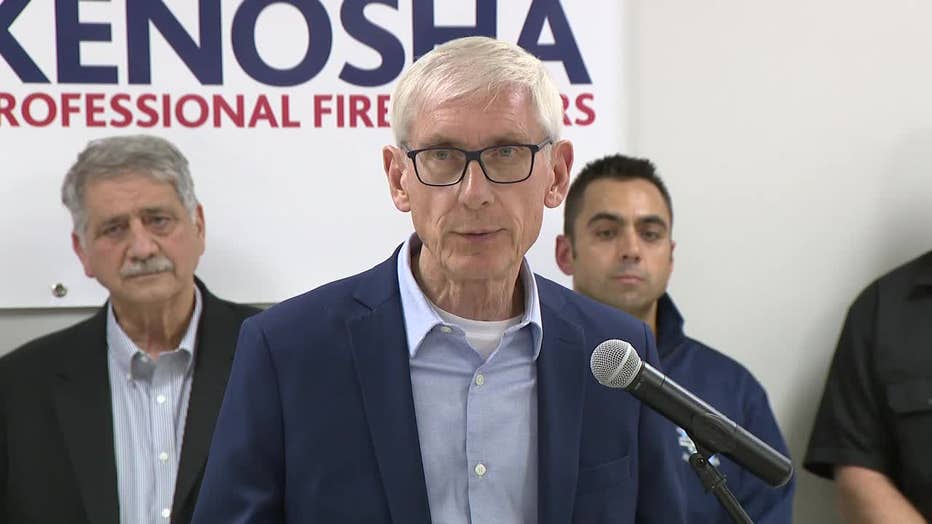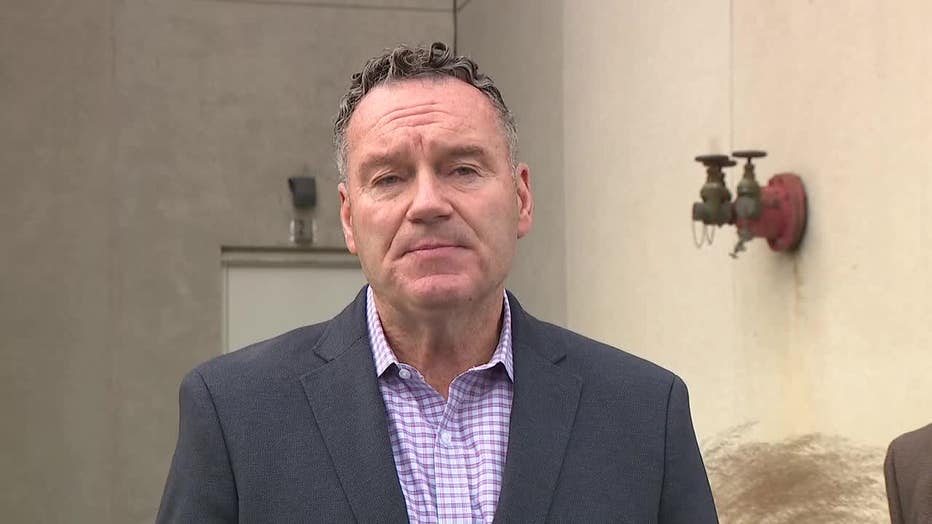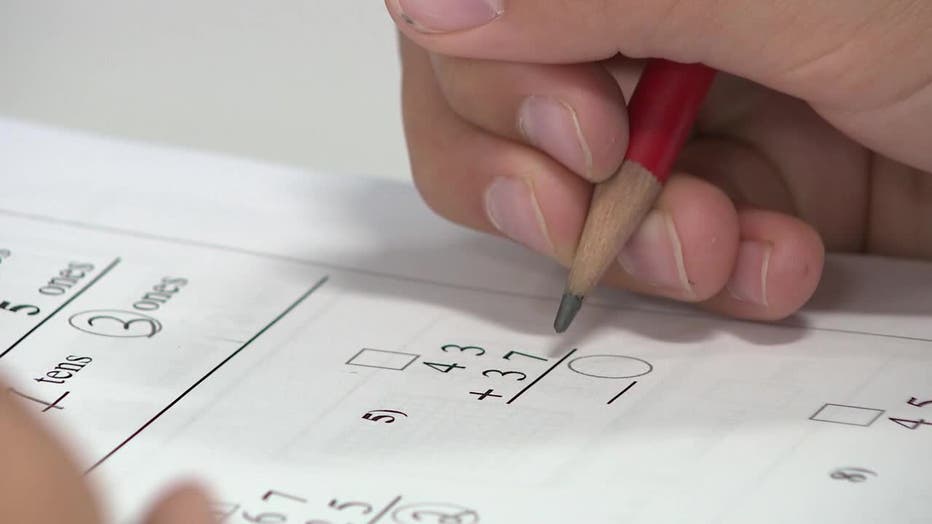Wisconsin test scores; learning loss evident latest report card shows

Wisconsin test scores; learning loss evident, latest report card shows; worst state for racial gaps
The "Nation's Report Card" is out for the first time since the pandemic began, and Wisconsin student test scores show learning loss. The national report also shows Wisconsin is the worst state for racial gaps between white and black students.
MILWAUKEE - The "Nation's Report Card" is out for the first time since the pandemic began. Wisconsin student test scores and all other states show learning loses. That federal government report also finds Wisconsin is the worst state in the nation for gaps between black and white students.
The report card shows Wisconsin eighth-grade students' average reading test scores sunk back to 1998 levels. The score this year is 262 – five points lower than the latest test in pre-pandemic 2019. Despite the drop this year, Wisconsin is a little better than the national average of 259.

For math, Wisconsin's eighth-grade students' average score this year was 281 – beating the national average of 273. However, this year's score for Wisconsin is still lower than the 2019 score of 289.
For fourth-grade Wisconsin students, the average math score was 240, which is higher than the national average of 235. In 2019, the same Wisconsin grade level averaged a similar 242. This year also beat the 237 averaged in 2003.
Fourth-grade students in the Badger State averaged 217 on their reading test, which is close to the national average of 216. In 2019, the Wisconsin score for this grade level was 220.
The nation's report card finds widening racial gaps, with Wisconsin the worst state in the country. Black Wisconsin eighth graders averaged 38 points lower than white students in reading, and 53 points lower in math. Only one place had a wider margin between white and black students – Washington, D.C.
Hispanic Wisconsin eighth-grade students averaged 19 points lower than white students in reading – and 27 points lower in math.
The report card also reveals differences between boys and girls. Wisconsin eighth-grade boys averaged eight points lower than girls in reading, but were very similar in math scores.
The federal government's National Assessment of Educational Progress puts out the report card, testing students in fourth and eighth grades.
The federal data also gives a snapshot of Milwaukee students. This year, the average reading score of fourth-grade students in the city was 187. That number is lower than the average for large cities, which is 209. Milwaukee fourth grade students in 2019 scored an average of 190.
For math, the average score of fourth-grade students in Milwaukee was 206, compared with 2019's score of 215 and 2009's score of 220. The national average in large cities this year was 227.
Education is an important issue on the campaign trail. The latest Marquette Law School Poll finds for independent Wisconsin voters, public schools was their biggest concern, with 71% saying they were very worried.
Wisconsin's governor impacts schools by signing or vetoing the state budget, which sends money to local schools.
"Achievement is never solely what happens between teacher and a kid in the classroom. If their home life is such that they, you know, nutrition is an issue, safety is an issue, affordable housing is an issue. We need to start working on all these things together. This is not something that we're just going to turn around and blame it on Milwaukee Public Schools and say they're horrible," said Wisconsin Gov. Tony Evers.

Gov. Tony Evers
Gov. Tony Evers urged the Republican-controlled legislature to spend $2 billion more on public schools – including on literacy and mental health. The governor proposed using part of an estimated $5 billion budget surplus in Wisconsin.
SIGN UP TODAY: Get daily headlines, breaking news emails from FOX6 News
"I will make sure that we create competition in the education marketplace. We will spend our tax dollars, all of us taxpayers in Wisconsin, spend our tax dollars frugally, economically and efficiently. That is what is missing right now from just throwing more money into education," said Tim Michels, Republican candidate for Wisconsin governor.

Tim Michels
"If you can't read, you're probably going to end up out on the streets. So we're going to do massive education reform. We're going to do a universal school choice, which empowers parents, puts parents back in charge of their sons' and daughters' education, and this will create competition in the education marketplace. Competition is a great motivator," Michels said.

A key part of Michels' plan is to allow any student in the state to qualify for the state's Parental Choice voucher – which uses taxpayer money to pay for kids to go to private schools. Gov. Evers vetoed that bill this year.
"There would be no money left for public schools. Period. I mean, how can you make vouchers a statewide solution, or impetus and have enough money? Where’s it all going to come from? Our first responsibility under the constitution is our public schools. What’s best for our kids is best for our state," Evers said.
FREE DOWNLOAD: Get breaking news alerts in the FOX6 News app for iOS or Android
Schools have been a focal point of major debate in recent years. Evers, the Democratic governor, vetoed a number of education-related bills the Republican-controlled legislature sent him, including one to break up Milwaukee Public Schools into four to eight smaller districts. Michels said he is open to the concept of breaking up MPS.

